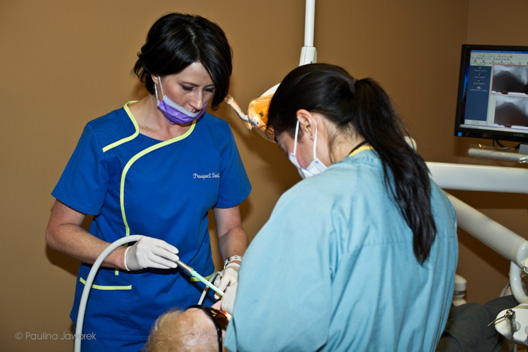Extractions
The most common reason for extraction is tooth damage due to breakage or decay. There are additional reasons for tooth extraction:
- Severe tooth decay or infection
- Severe gum disease, which may affect the supporting tissues and bone structures of teeth
- In preparation for orthodontic treatment (braces)
- Teeth in the fracture line
- Teeth which cannot be restored endodontically
- Fractured teeth
- Supernumerary, supplementary or malformed teeth
- Prosthetics; teeth detrimental to the fit or appearance of dentures
- Insufficient space for wisdom teeth
- Cosmetic; teeth of poor appearance, unsuitable for restoration

Before removing a tooth, the dentist thoroughly examines the patient's medical and dental history and, if necessary, conducts X-rays. Before the extraction, the tooth area is anesthetized.
After having your tooth removed, there are certain steps you can take to help your recovery. It can take several days to a week to make a full recovery. To ensure proper healing:
- You can brush your teeth but keep your toothbrush away from the healing wound to begin with, brushing closer to it each day.
- Don’t rinse your mouth out for at least six hours. After that, rinse gently with water. If you like, you can try adding half a teaspoon of table salt dissolved in a glass of warm water.
- When you feel ready to eat, start with sips of warm (not hot or spicy), soft or pureed food that you don’t need to chew. Don’t suck on a straw.
- If your gum bleeds, bite down on a clean pad of material such as a clean handkerchief for at least 15 minutes.
- Don’t drink alcohol for at least 24 hours and don’t smoke for as long as possible – at least 24 hours.